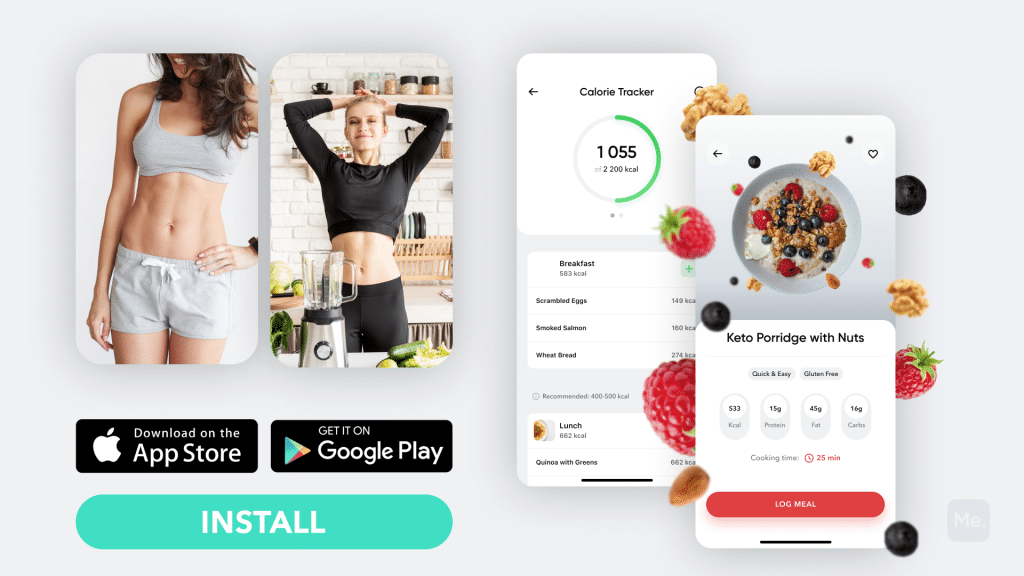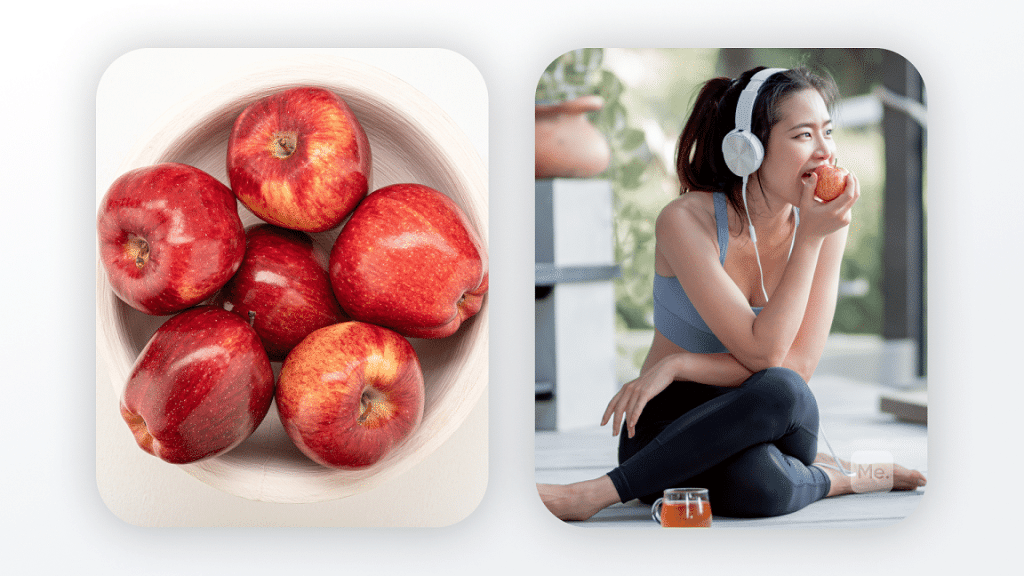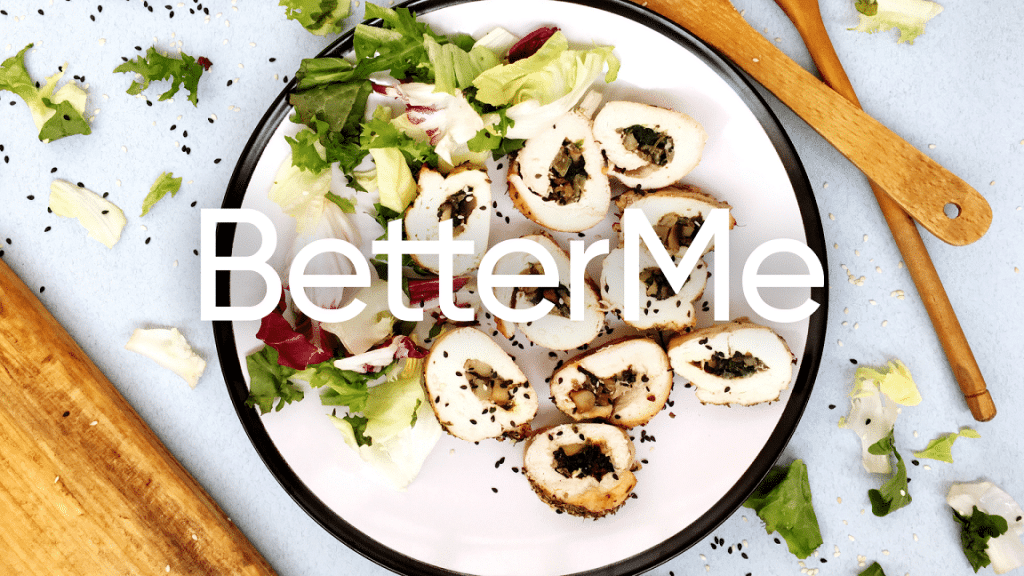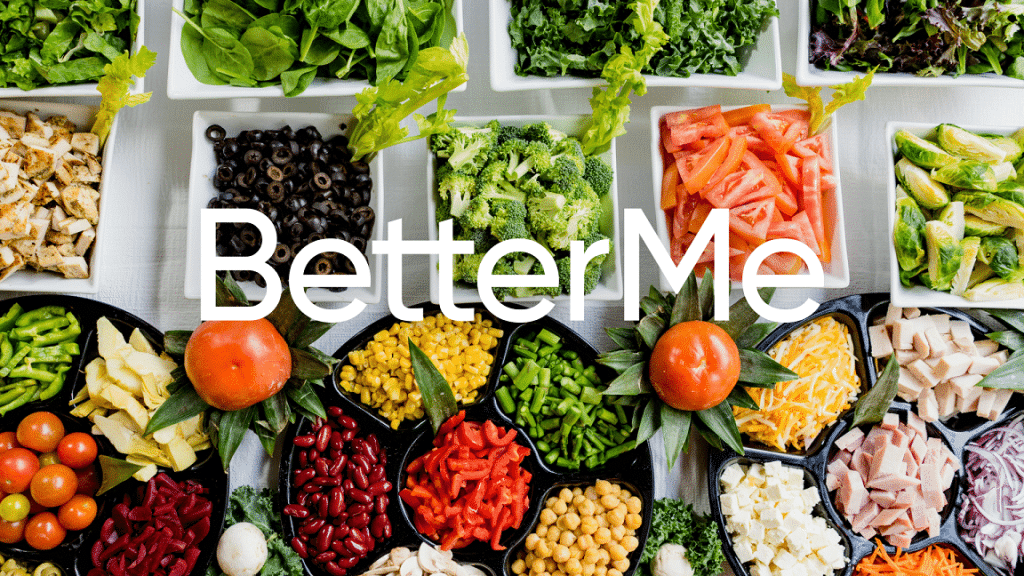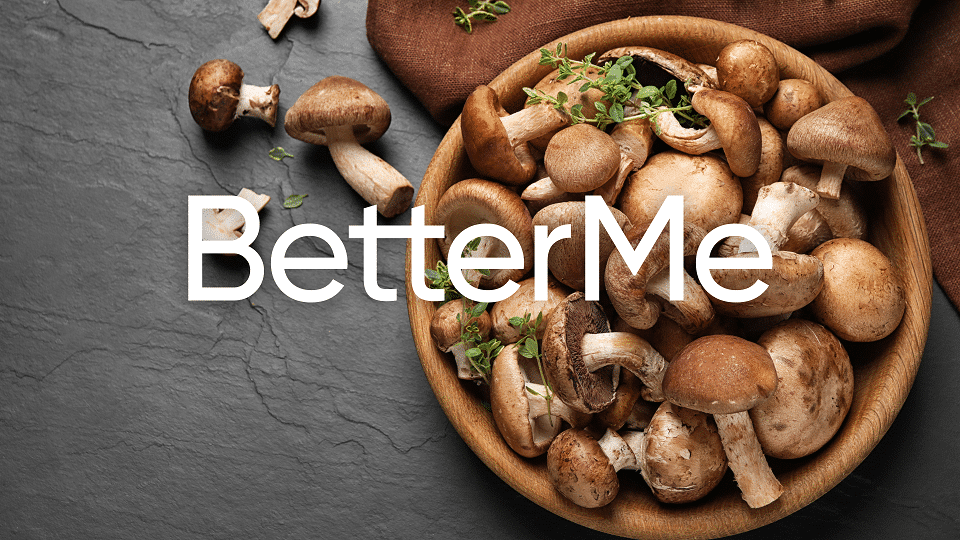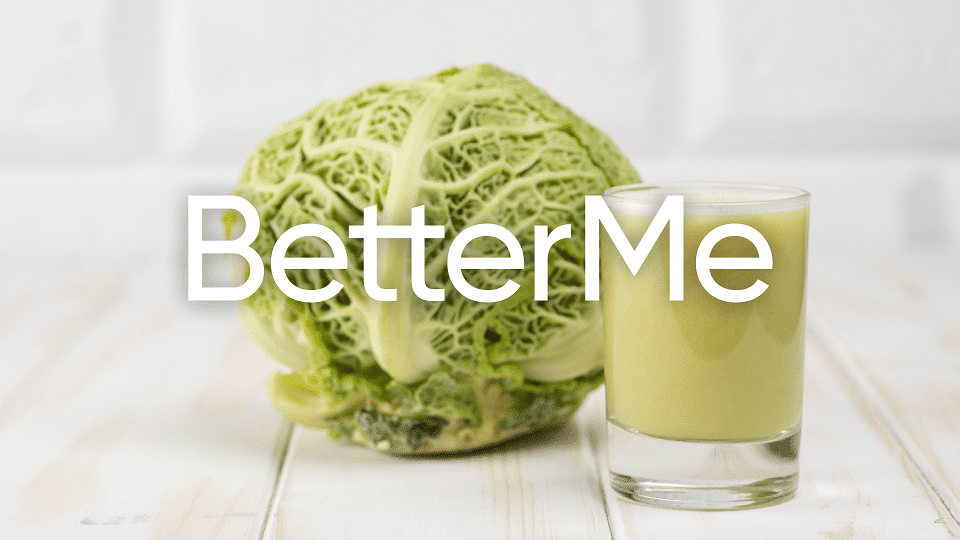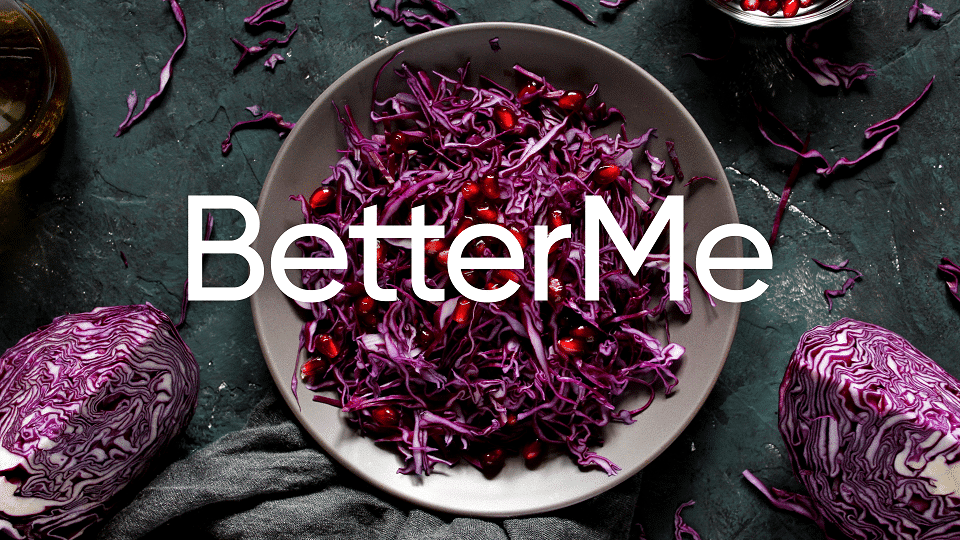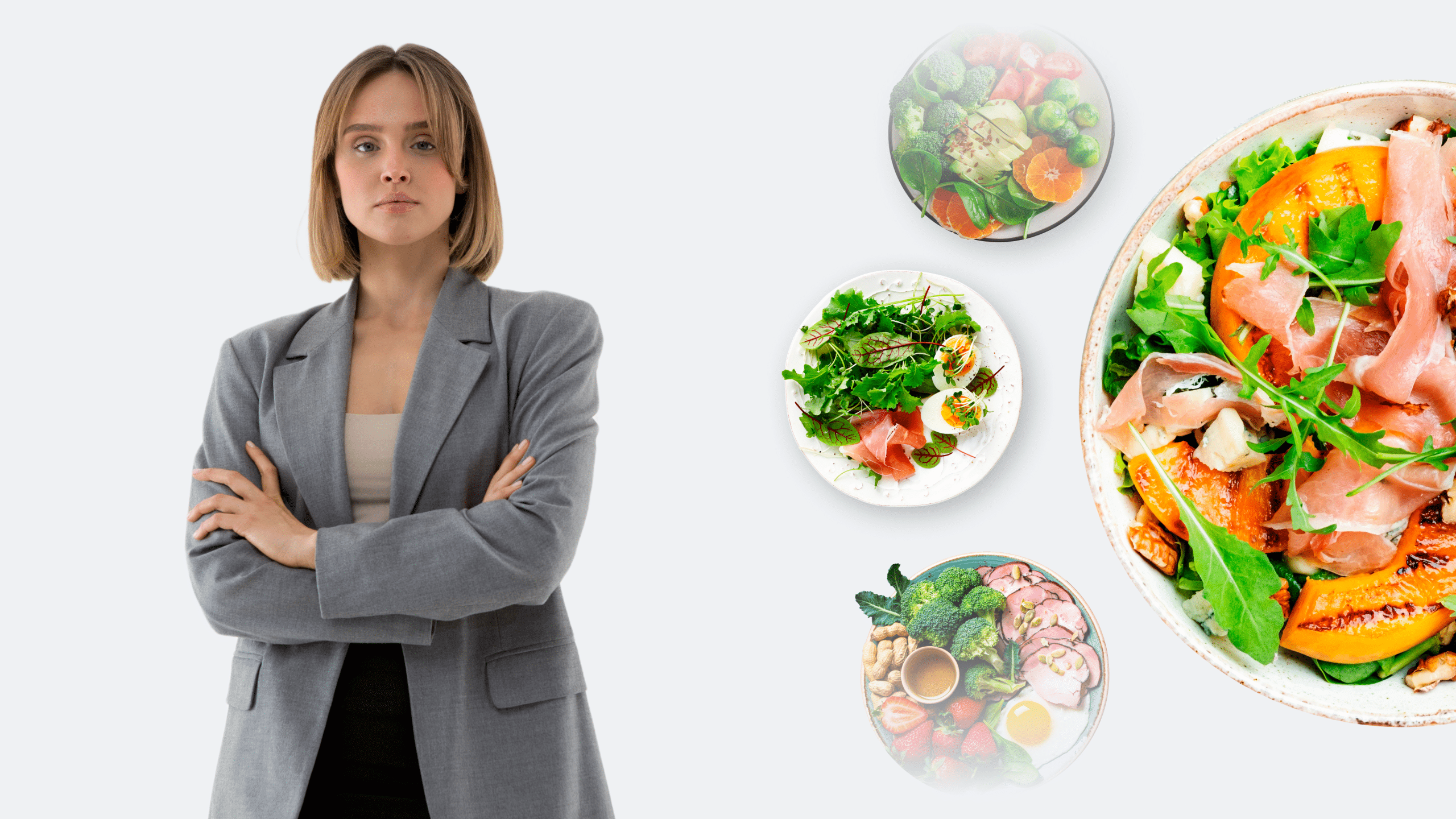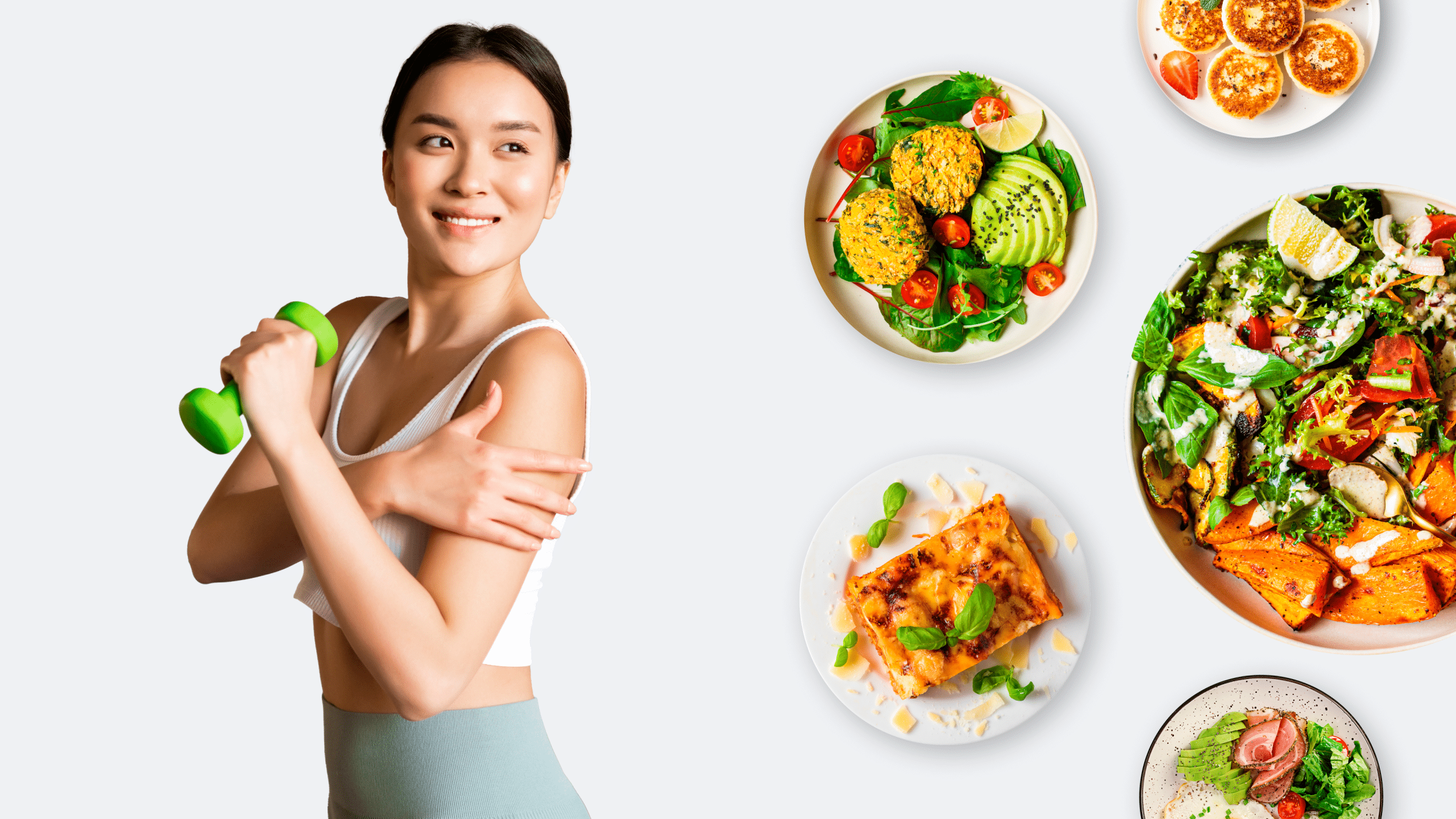Everybody wants a set of pearly whites—strong, white teeth that are the envy of others. However, not everyone is born with great teeth, and some people have teeth which may become stained or discolored over time due to certain foods and drinks, smoking, or other habits. Luckily, there are a few things you can do to help keep your teeth looking their best. One simple way is to incorporate more tooth-healthy foods into your diet. While no one “miracle” food will magically make your teeth strong and white, certain nutrients are essential for oral health, and eating a variety of these foods can help keep your smile looking its best. Let’s discuss a few of the top foods for strong and healthy teeth.
Foods That Help Whiten Teeth
Your tooth’s outer layer, or enamel, can become stained over time due to the foods you eat and drinks you consume. Foods that are high in chromogens (pigments that can produce color) or tannins (compounds that can cause staining) are more likely to cause stains (27).
Foods that are known to stain teeth include:
- Coffee
- Tea
- Wine
- Soda
- Berries
- Soy sauce
- Curry
- Beets
- Tomato sauce
Fortunately, several foods may help to whiten teeth by scrubbing away stains and promoting saliva production, which can help to rinse away food particles and bacteria.
Foods that can help whiten teeth include:
Strawberry
Strawberries are more than just a delicious fruit—they might also help to whiten teeth. The malic acid in strawberries acts as a natural astringent and can help to remove surface stains (7).
Malic acid also increases saliva production, which can help to rinse away food particles and bacteria (7).
Watermelons
Watermelon has more malic acid than strawberries, making it an even more effective teeth whitener. Similarly, the high water content in watermelons can help to keep your mouth hydrated and promote saliva production.
Pineapple
Your teeth are covered with pellicle; a thin, protein-rich film that helps to protect your teeth from bacteria and other harmful substances. Unfortunately, this film also provides a surface for staining substances to adhere to (4).
The bromelain in pineapple can help to break down this film, making it easier to remove stains (12). Bromelain is also an anti-inflammatory agent, which can help to reduce gum inflammation and irritation (11).
Read More: 8 Foods That Lower Testosterone Levels And What To Eat Instead
Papaya
Just like pineapples, papayas contain a proteolytic enzyme called papain, which can help to remove surface stains. Papain also has anti-inflammatory properties, making it possibly beneficial for your gums (3).
Milk
Milk is rich in lactic acid, which can help to remove surface stains. Lactic acid is also an antimicrobial agent, meaning it can help to kill bacteria that cause cavities and gum disease (9).
Casein, a protein found in milk, can bind to polyphenols in tea and coffee, helping to prevent them from staining your teeth (23).
Celery
Celery is known for its high water content, which helps keep you hydrated and promote saliva production. This crunchy vegetable is also a good source of fiber, which can help to scrub away food particles and bacteria that can cause plaque buildup.
Baking Soda
Baking soda is an ingredient rather than a food, but it’s worth mentioning due to its ability to remove surface stains and promote saliva production.
When used as a toothpaste, baking soda can help to remove surface stains and promote saliva production. However, be sure to use it in moderation, as overuse can damage your enamel (28).
It works by neutralizing acids from certain foods that can cause staining, and also as an abrasive.
To use baking soda to lighten your teeth, mix it with water to form a paste and brush your teeth with it. Talk to your dentist about how often you can safely use this method.
Mustard Oil
Mustard oil is a traditional Ayurvedic remedy for oral health. It’s known for its antibacterial, antifungal, and anti-inflammatory properties, which can help to keep your gums healthy and prevent gum disease (2).
It’s used to remove plaque and stains from teeth (26).
To use mustard oil to clean your teeth, mix it with salt and massage it onto your gums and teeth. Rinse your mouth thoroughly with water afterward.
If you struggle to even flirt with the idea of giving up your favorite foods or working out till your legs give way – BetterMe app is here to breathe a fresh perspective into the way you view the weight loss process! Check out the app and experience the fun side of fitness and dieting with BetterMe!
Foods That Help Strengthen Teeth
Your teeth are made up of four main layers (1):
- Enamel: The hard, outer layer that protects your teeth from damage
- Dentin: The layer under enamel that makes up the bulk of your tooth
- Pulp: The innermost layer that contains blood vessels and nerves
- Cementum: The outermost layer of your tooth root
Enamel is the hardest substance in your body, but it can still be damaged by acidic foods and drinks, sugary foods, teeth grinding, and other factors (1). Once your enamel is damaged, it can’t be repaired.
Fortunately, many foods can help to strengthen your teeth and prevent damage. Foods that help strengthen teeth include:
Water
Many don’t realize that water is essential for oral health. Not only does it keep you hydrated, but it also washes away food particles and bacteria that can cause cavities and gum disease.
Cheese, Yogurt, And Other Dairy Products
Dairy products are rich in calcium, which is essential for strong teeth. Calcium helps to harden tooth enamel and prevent it from being worn down by acidic foods and drinks (5).
In addition, dairy products contain casein, a protein that can help prevent damage to the tooth enamel (17).
Fermented foods like yogurt are rich in probiotics, which are beneficial for oral health. Probiotics may help fight tooth decay by reducing the growth of harmful bacteria in your mouth (24).
Celery, Carrots, And Other Crunchy Vegetables
Crunchy vegetables are good for oral health because they help to scrub away food particles and bacteria that can cause cavities and gum disease.
These vegetables also promote saliva production, which helps to keep your mouth clean and prevent the growth of harmful bacteria.
Their nutritional value is also good for oral health, as they contain various vitamins and minerals that are essential for strong teeth (22).
Common nutrients found in crunchy vegetables that are good for oral health include (25):
- Vitamin A: Important for tooth and enamel development
- Vitamin C: Supports healthy gums
- Calcium: Helps to strengthen teeth
- Phosphorus: Helps to strengthen teeth
Green And Black Tea
Tea contains polyphenols, which are antioxidants that can help to prevent damage to your teeth and gums. Polyphenols can also help to reduce the growth of harmful bacteria in your mouth (16).
Green and black tea also contain fluoride, which helps to prevent tooth decay. To get the most benefit from tea, drink it without sugar. Milk may reduce the availability of some of the polyphenols, but it also can help prevent the tannins from staining your teeth.
Note that tannins in tea can cause staining, so it’s best to brush your teeth afterwards.
Nuts
Nuts are a good source of vitamin E, which is an antioxidant that can help to protect your gums from inflammation (31).
They’re also a good source of calcium, which helps to keep your teeth strong. Common nuts that are good for oral health include:
- Almonds
- Walnuts
- Pistachios
- Cashews
Seeds
Like nuts, seeds are also a good vitamin E and calcium source. They’re also a good source of phosphorus, which helps to rebuild tooth enamel (31). Common seeds that are good for oral health include:
- Sunflower seeds
- Pumpkin seeds
- Sesame seeds
- Flaxseeds
Fish
Fish is a good source of omega-3 fatty acids, which have anti-inflammatory properties. This might help to reduce gum inflammation and prevent gum disease (18).
Fish is also a good source of vitamin D, which helps the body absorb calcium (6). This is important for strong teeth, as calcium helps to harden tooth enamel and prevent it from being worn down.
Some of the best fish for oral health include:
- Salmon
- Tuna
- Mackerel
- Trout
Cranberries And Raisins (No Added Sugar)
Cranberries and raisins are good for oral health because they contain polyphenols, which have antioxidant and antibacterial properties. This may help to reduce the growth of harmful bacteria in your mouth and prevent gum disease (13).
They’re also a good source of vitamins A and C, which are essential for strong teeth. Choose varieties without added sugar to avoid tooth decay.
Fruits And Vegetables With A High Water Content
Fruits and vegetables with a high water content help to keep your mouth hydrated and prevent dry mouth. Dry mouth is a condition that can lead to cavities, as it allows harmful bacteria to grow (10).
Some of the best fruits and vegetables for oral health include:
- Watermelons
- Cucumbers
- Celery
- Strawberries
Dark Leafy Greens
Dark leafy greens are a good source of calcium and vitamin K, which are essential for strong teeth and bones. They’re also a good source of folate, which might help to prevent gum disease (14).
Some of the best dark leafy greens for oral health include:
- Spinach
- Kale
- Collard greens
- Turnip greens
Read More: Foods To Prevent Dementia, As Well As Other Lifestyle Changes That May Help
Shiitake Mushrooms For Tooth Health
Shiitake mushrooms are a good source of copper, which helps to prevent tooth decay (30). They’re also a good source of vitamin D, which helps the body absorb calcium. This is important for strong teeth, as calcium helps to harden tooth enamel and prevent it from being worn down.
Researchers found that extracts of shiitake mushrooms have anti-inflammatory and antibacterial properties. This may help reduce gum inflammation and prevent gum disease (32)
Dental Health Beyond Your Diet
Your dental health is not just about what you eat—it’s also about how well you take care of your teeth. Some dietary habits and factors that affect the likelihood of developing cavities include:
Frequency Of Eating Highly Sugary, Refined, Or Acidic Foods And Drinks
Your teeth suffer damage every time you eat or drink something acidic, sugary, or highly refined. This damage is called enamel erosion (8).
The more often you consume these foods and drinks, the greater your risk of developing cavities. To reduce your risk, it’s best to limit your consumption of these foods and drinks or brush your teeth immediately afterwards.
Food Combinations
Many don’t know that certain food combinations can have a negative effect on oral health.
For example, eating fries with ketchup might be especially damaging to teeth because the acidity of the ketchup combined with the starchiness of the fries creates a sugar-like substance that can stick to teeth and cause cavities.
Some food combinations might help to reduce the risk of cavities. For example, eating cheese after a meal is thought to help to neutralize the acid in your mouth and protect your teeth from damage.
Other potentially helpful food combinations include:
- Eating an apple after a meal
- Drinking green tea with lemon
- Eating yogurt with berries
Medical Conditions
Your digestive system starts in your mouth, so it’s not surprising that many medical conditions can affect oral health. For example, acid reflux disease can cause stomach acids to flow back up into the mouth, which can damage teeth (15).
Other medical conditions that can affect oral health include (19):
- Diabetes: People with diabetes are more likely to develop gum disease.
- Eating disorders: People with eating disorders are at a higher risk of developing tooth decay and gum disease.
- Oral cancer: People with oral cancer are more likely to develop cavities.
- Pregnancy: Pregnant women are at a higher risk of developing gingivitis, a type of gum disease.
Whether you’re a workout beast or just a beginner making your first foray into the world of fitness and dieting – BetterMe has a lot to offer to both newbies and experts! Install the app and experience the versatility first-hand!
Lifestyle Habits
Your lifestyle habits can also affect your oral health. For example, smoking and using other tobacco products can increase your risk of developing gum disease, tooth decay, and oral cancer.
Other lifestyle habits that can affect oral health include (20):
- Drinking alcohol: Heavy drinking can lead to a dry mouth, which can increase the risk of cavities.
- Grinding your teeth: This can damage your tooth enamel and lead to tooth pain.
- Using illegal drugs: Drugs such as methamphetamine can cause tooth decay.
Keep Your Teeth White And Strong With Good Oral Health Habits
Many foods can help to keep your teeth white and strong. In addition to eating a healthy diet, it’s important to practice good oral hygiene habits such as (21):
Brushing Twice A Day, Or Whenever Necessary
There’s no limit to how often you should brush your teeth, as long as you’re not causing damage to your mouth. Brushing helps to remove plaque and food particles from your teeth, and it’s important to do it at least twice a day.
If you eat or drink something that can stain your teeth, such as coffee or red wine, it’s best to brush your teeth immediately afterwards.
Flossing Daily
Flossing helps to remove plaque and food particles from between your teeth, where your toothbrush can’t reach. It’s important to floss at least once a day.
Using Mouthwash
Mouthwash can help to remove plaque and food particles from your teeth and gums.
Don’t Use Your Teeth As Tools
It’s important to avoid using your teeth as tools, as this can damage your tooth enamel. If you need to open something, use a pair of scissors or a knife.
Visit Your Dentist Regularly
Visit your dentist regularly for checkups and cleanings. This can help prevent problems such as tooth decay and gum disease.
Your dentist can also help identify any oral health problems early on and provide treatment to prevent them from getting worse.
What To Do If You Have A Cavity
If you think you have a cavity, the best thing to do is to see your dentist as soon as possible. They will be able to treat the cavity and help to prevent it from getting worse.
Cavities can be treated with:
- Fillings: This is the most common treatment for cavities. The dentist will remove the decay and then fill the cavity with a material such as an amalgam, gold, or composite resin.
- Crowns: If the cavity is large, the dentist may recommend a crown. This is a type of cap that covers the entire tooth.
- Root canals: If the cavity has reached the pulp of the tooth, the dentist may recommend a root canal. This is a procedure in which the pulp is removed and the cavity is filled.
- Extractions: In some cases, the tooth may be so damaged that it needs to be extracted.
The Bottom Line
Taking care of your teeth is important for your overall health. Eating a balanced diet and limiting sugary, refined, and acidic foods and drinks can help to reduce the risk of cavities. Many food combinations might help to protect your teeth from damage. If you have a cavity, it’s important to see your dentist as soon as possible to get it treated.
DISCLAIMER:
This article is intended for general informational purposes only and does not address individual circumstances. It is not a substitute for professional advice or help and should not be relied on to make decisions of any kind. Any action you take upon the information presented in this article is strictly at your own risk and responsibility!
SOURCES:
- Anatomy, Head and Neck, Teeth (2021, ncbi.nlm.nih.gov)
- Antimicrobial effects of mustard oil-containing plants against oral pathogens: an in vitro study (2020, biomedcentral.com)
- Anti-plaque and anti-gingivitis effect of Papain, Bromelain, Miswak and Neem containing dentifrice: A randomized controlled trial (2017, ncbi.nlm.nih.gov)
- Bacterial interactions in dental biofilm (2011, ncbi.nlm.nih.gov)
- Calcium and Oral Health (2006, link.springer.com)
- Calcium and Vitamin D: Skeletal and Extraskeletal Health (2008, ncbi.nlm.nih.gov)
- Comparison between the effect of commercially available chemical teeth whitening paste and teeth whitening paste containing ingredients of herbal origin on human enamel (2018, ncbi.nlm.nih.gov)
- Dental erosion and severe tooth decay related to soft drinks: a case report and literature review (2009, ncbi.nlm.nih.gov)
- Developing Lactic Acid Bacteria as an Oral Healthy Food (2021, mdpi.com)
- Dry Mouth (2018, nidcr.nih.gov)
- Effect of proteolytic enzyme bromelain on pain and swelling after removal of third molars (2016, ncbi.nlm.nih.gov)
- Effect of vital bleaching with solutions containing different concentrations of hydrogen peroxide and pineapple extract as an additive on human enamel using reflectance spectrophotometer: An in vitro study (2017, ncbi.nlm.nih.gov)
- Exploring the role of cranberry polyphenols in periodontits: A brief review (2014, ncbi.nlm.nih.gov)
- Folate-receptor 1 level in periodontal disease: a pilot study (2019, biomedcentral.com)
- Gastroesophageal Reflux Disease and Tooth Erosion (2011, hindawi.com)
- Green tea: A promising natural product in oral health (2012, sciencedirect.com)
- Inhibition of dental erosion by casein and casein-derived proteins (2011, pubmed.ncbi.nlm.nih.gov)
- Omega 3 fatty acids and periodontitis in US adults (2012, ncbi.nlm.nih.gov)
- Oral health: A window to your overall health (2021, mayoclinic.org)
- Oral health of substance-dependent individuals: Impact of specific substances (2011, ncbi.nlm.nih.gov)
- Oral Hygiene (2020, nidcr.nih.gov)
- Poor oral health and the association with diet quality and intake in older people in two studies in the UK and USA (2021, cambridge.org)
- Prevention of tea‐induced extrinsic tooth stain (2014, onlinelibrary.wiley.com)
- Probiotics and Oral Health (2010, ncbi.nlm.nih.gov)
- Role of Vitamins in Oral Health & Disease: An Overview (2015, researchgate.net)
- Synthesis of carbon nanoparticles from mustard oil and evaluation of their antibacterial activity against dental caries (2017, onlinelibrary.wiley.com)
- Teeth discolouration and prescribed slimming magistral formula: a case report (2021, tandfonline.com)
- The efficacy of baking soda dentifrice in controlling plaque and gingivitis: A systematic review (2019, onlinelibrary.wiley.com)
- The Fluoride Debate: The Pros and Cons of Fluoridation (2018, ncbi.nlm.nih.gov)
- The Role of Copper and Zinc in the Prevention of Dental Caries – A Systematic Review (2020, researchgate.net)
- The Role of Nutrition in Periodontal Health: An Update (2016, mdpi.com)
- The Unexplored Anticaries Potential of Shiitake Mushroom (2016, .ncbi.nlm.nih.gov)



